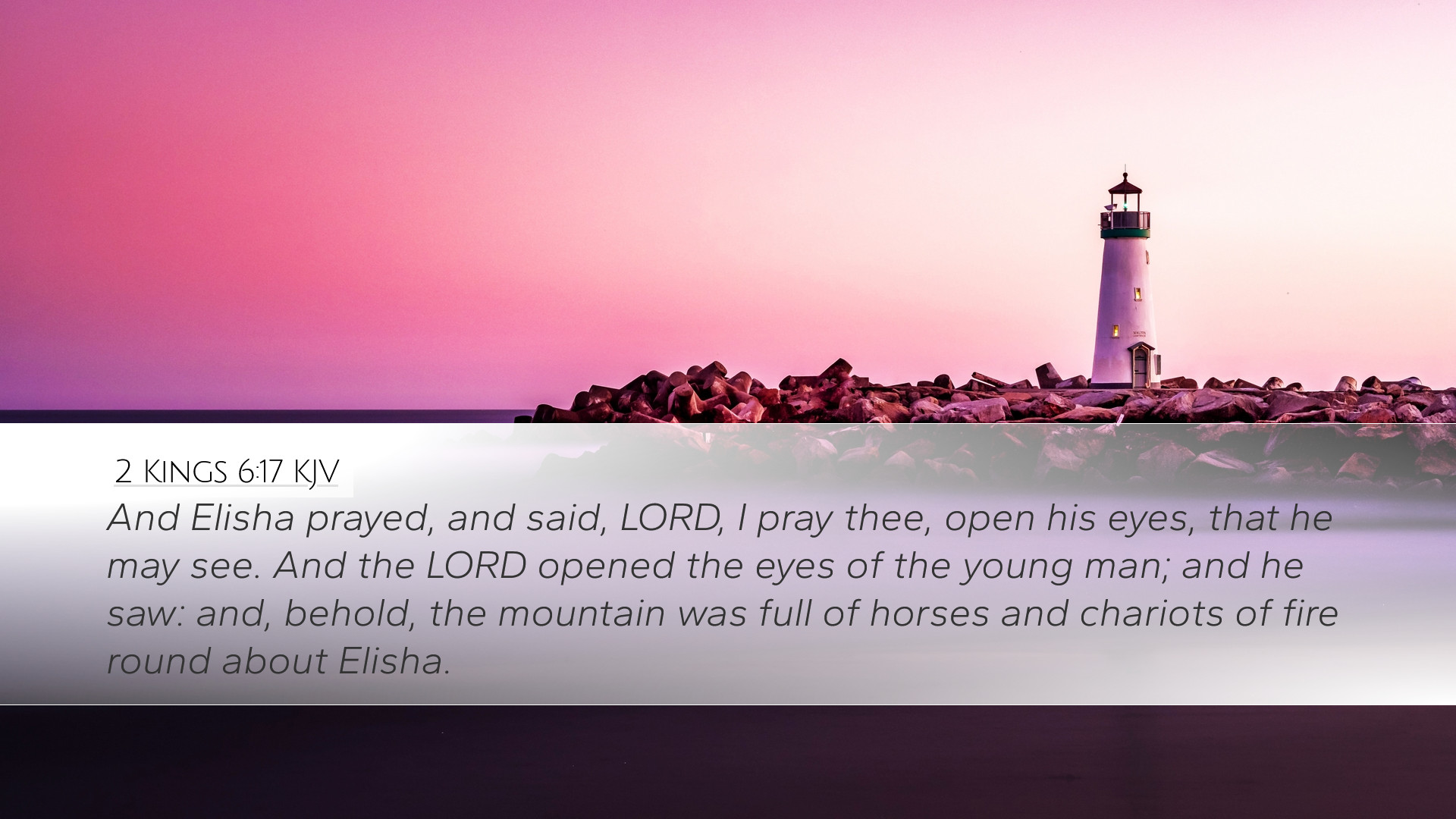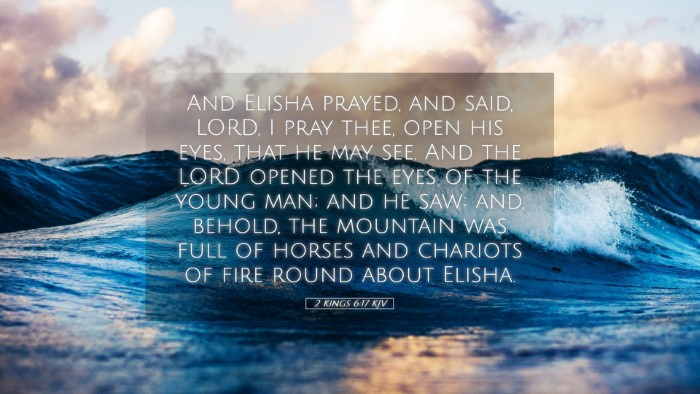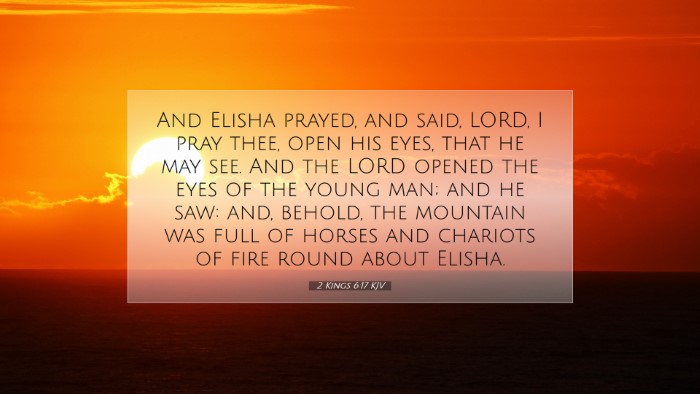Commentary on 2 Kings 6:17
Verse: "And Elisha prayed, and said, Lord, I pray thee, open his eyes, that he may see. And the Lord opened the eyes of the young man; and he saw: and, behold, the mountain was full of horses and chariots of fire round about Elisha." (2 Kings 6:17, KJV)
Introduction
This verse occurs within a remarkable account of divine intervention. It illustrates a crucial moment where spiritual insight is granted to a servant of Elisha, revealing the unseen forces of God that surround them. This commentary draws on insights from Matthew Henry, Albert Barnes, and Adam Clarke to illuminate the theological and practical implications of this verse.
Contextual Background
The historical setting of this passage is during a time of conflict between Israel and Syria. Elisha, a prophet of God, has been providing divine insights to the king of Israel, which frustrates the Syrians. When the Syrian king sends an army to capture Elisha, the prophet's servant becomes fearful, highlighting the theme of faith versus fear.
The Nature of Spiritual Vision
Elisha’s prayer for his servant is pivotal. Matthew Henry emphasizes that this encounter illustrates the necessity of spiritual enlightenment. The young man's physical sight was intact; however, he lacked the ability to see the true reality of God's protection. Henry notes:
- “The greatest enemies of a believer are not those who stand before him but those who are unseen.”
Elisha's Prayer
By praying, Elisha demonstrates reliance on God for understanding and vision. Albert Barnes points out that this act of prayer highlights the necessity of divine help in overcoming fear:
- “Elisha’s prayer is a calling upon the Lord’s power to reveal His glory, which is often hidden from our limited understanding.”
The Divine Response
The immediate answer to Elisha’s prayer is powerful. God opens the eyes of the servant, allowing him to perceive the angelic hosts that surround them. Adam Clarke elaborates on the significance of these chariots of fire, stating:
- “The heavenly cavalry signifies the protection God offers His chosen, showing that there are more with us than against us.”
Theological Implications
This passage serves as a reminder of the unseen spiritual realities that govern life. The presence of God’s angels and these chariots of fire points to a greater understanding of God’s sovereignty. Matthew Henry argues that acknowledging the presence of God amidst trials fosters great faith:
- “When we see things from God’s perspective, the mountains of our challenges become insignificant.”
Lessons for Pastoral Ministry
For pastors and theologians, the sermon application from 2 Kings 6:17 could focus on the importance of prayer and spiritual awareness among congregants. Albert Barnes suggests:
- “Encouraging believers to seek God gives them the courage to face their fears.”
- “A church that prays for spiritual insight will discover the immense support God provides.”
Conclusion
The narrative of 2 Kings 6:17 encapsulates vital truths about divine protection, spiritual awareness, and the power of intercessory prayer. As believers recognize the heavenly resources at their disposal, fears diminish, and faith is amplified. Engaging with this passage allows believers, pastors, and theologians to reflect on their reliance on God’s power and visibility in their lives.
Final Reflections
In facing challenges, the prayer of Elisha serves as a model for understanding and seeking God’s intervention. The sight granted to the prophet’s servant is a testament to the faithfulness of God amidst adversities. As we navigate life’s uncertainties, may we, like Elisha's servant, receive spiritual eyes to perceive the divine assistance that surrounds us at all times.


